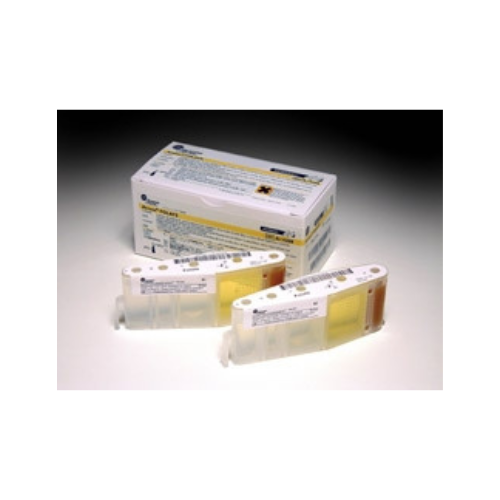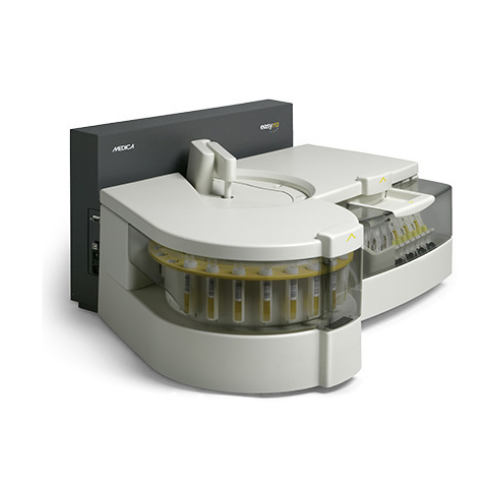For Business Use Only. Does Not Ship to Residential Addresses. For use inside an Analyzer, Sold Separately.
472137 Beckman Synchron and AU Systems Hemolyzing Reagent, 1000 Tests
472137 Beckman Synchron and AU Systems Hemolyzing Reagent, 1000 Tests
Product Code: 472137
Manufacturer: Beckman Coulter
Shipping Weight: 10.00lbs (4.54kg)
Product Description
- Diluent for HbA1c sample preparation.
- For use as an A1c Level 1 calibrator for HbA1c and HbA1c2.
- Also known as "SCD, HEMOLYZING SOLN 1000TEST CX/L".
- Compatible with AU 2000 Series Chemistry Analyzers
- Compatible with AU 400 Series Chemistry Analyzers
- Compatible with AU 600 Series Chemistry Analyzers
Intended Use
The HbA1c (Hemoglobin A1c) reagent, when used in conjunction with Beckman Coulter Systems, HbA1c Calibrators, and SYNCHRON and AU Hemolyzing Reagent, is intended for the quantitative determination of hemoglobin A1c concentration in human whole blood.
The absolute HbA1c and Total Hemoglobin (THb) values generated as part of the HbA1c assay are intended for use in the calculation of the HbA1c/Total Hemoglobin ratio, and must not be used individually for diagnostic purposes.
About Hemoglobin A1c
Measurement of hemoglobin A1c is accepted as a method to measure long-term glucose control in patients with diabetes mellitus (a chronic disorder associated with disturbances in carbohydrate, fat, and protein metabolism and characterized by hyperglycemia). Determination of HbA1c provides an important tool for monitoring the efficiency of dietary control and therapy during the treatment of diabetes mellitus. Long-term treatment of the disease emphasizes control of blood glucose levels in preventing the acute complications of ketosis and hyperglycemia. In addition, long-term complications such as retinopathy, neuropathy, and cardiovascular disease can be minimized if blood glucose levels are effectively controlled.
The process of conversion from hemoglobin A to hemoglobin A1c depends on the blood glucose concentration. Since the average life of a red blood cell is 120 days, measurement of hemoglobin A1c can reflect the mean daily blood glucose concentration over the preceding two to three months and provides a much better indication of glycemic control than blood or urinary glucose determinations.
Additional Resources:
Hemoglobin A1c Reagent
Safety Data Sheet











